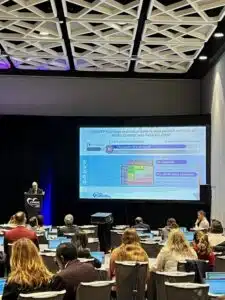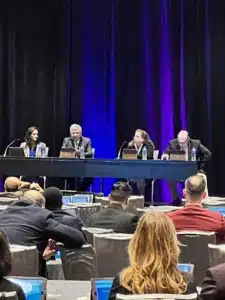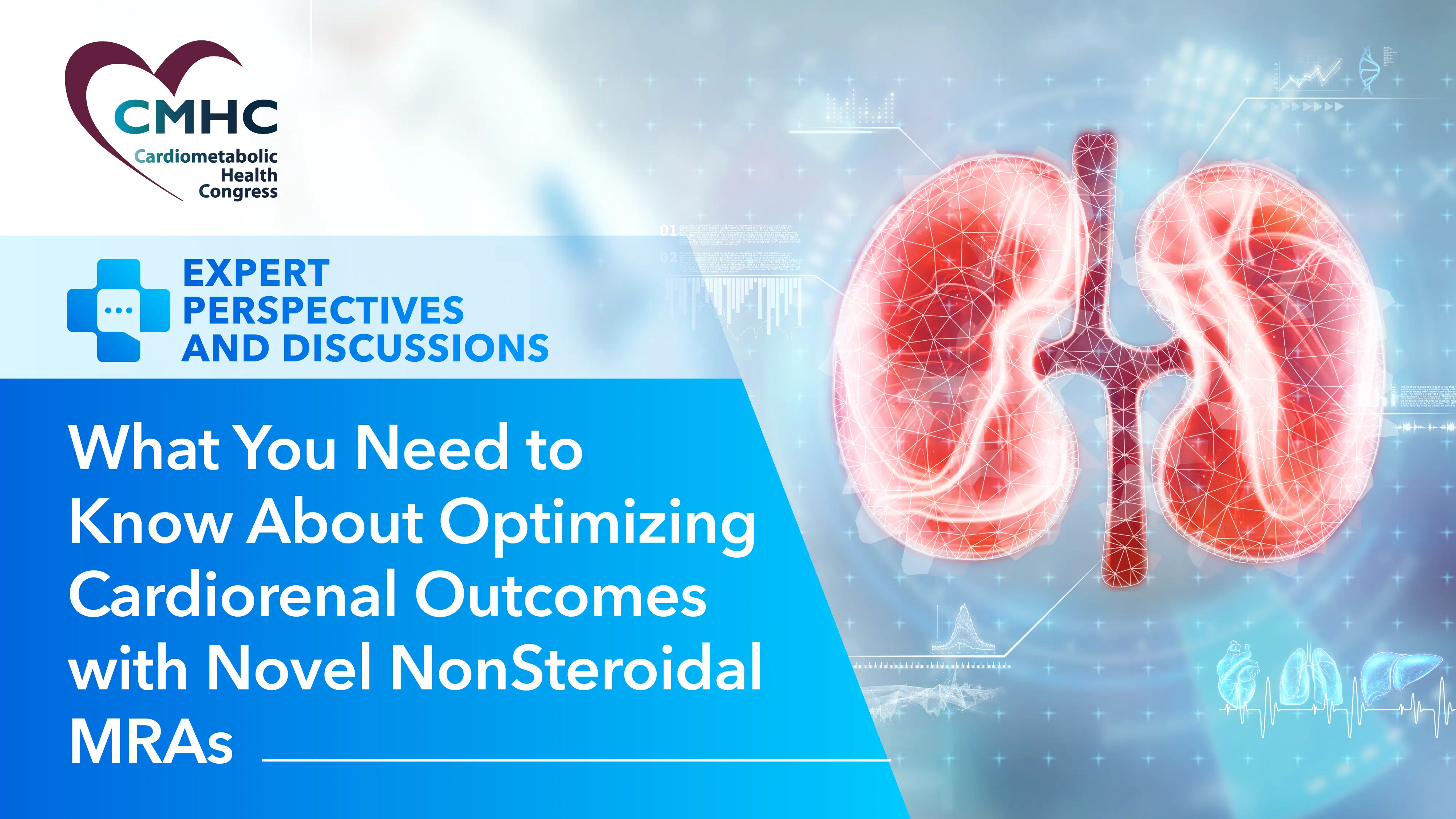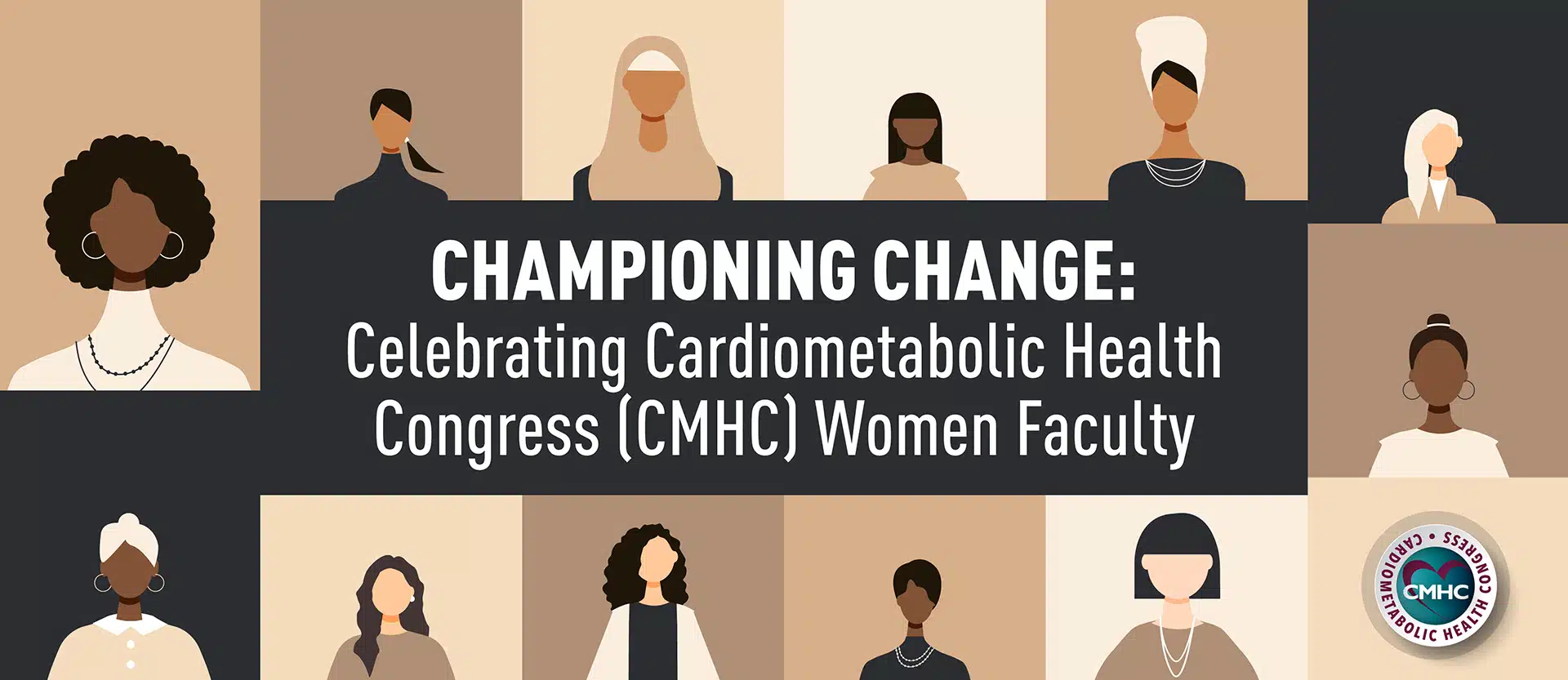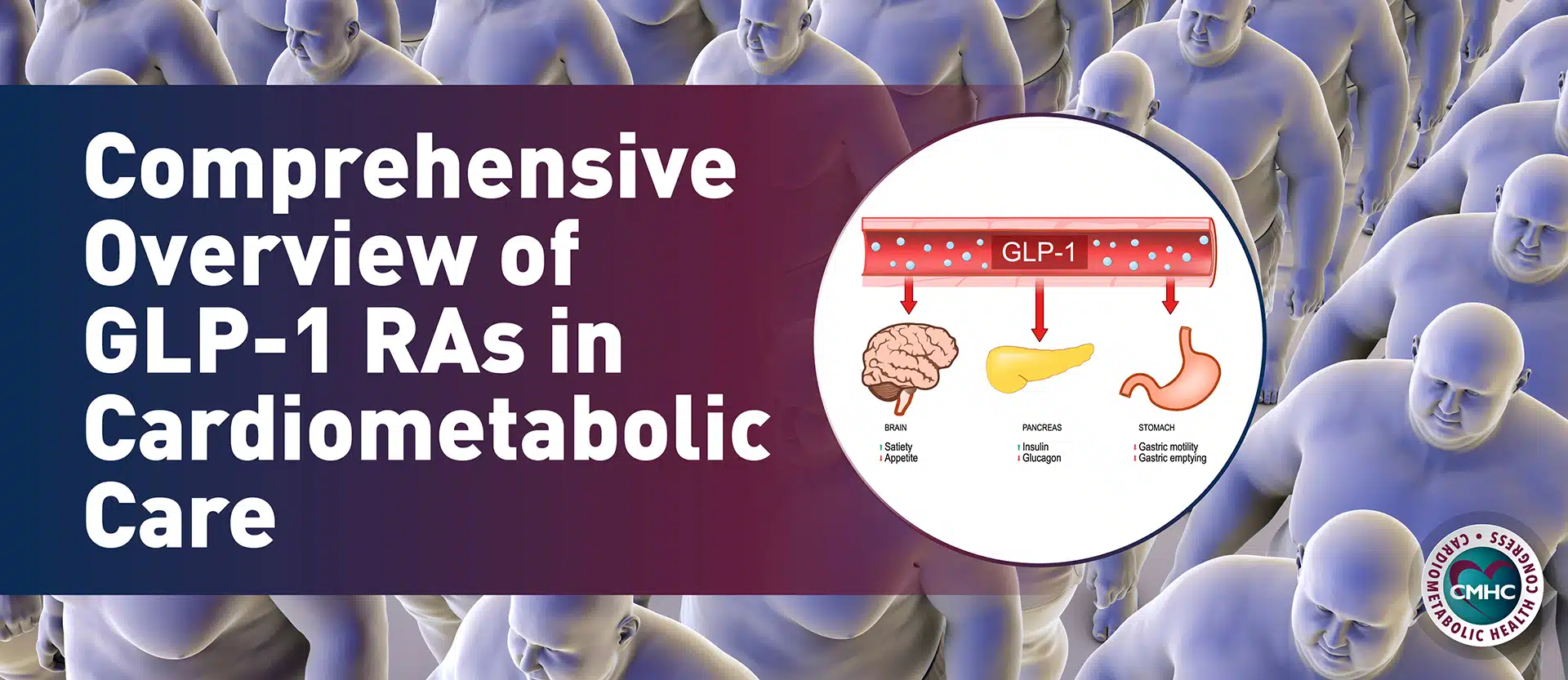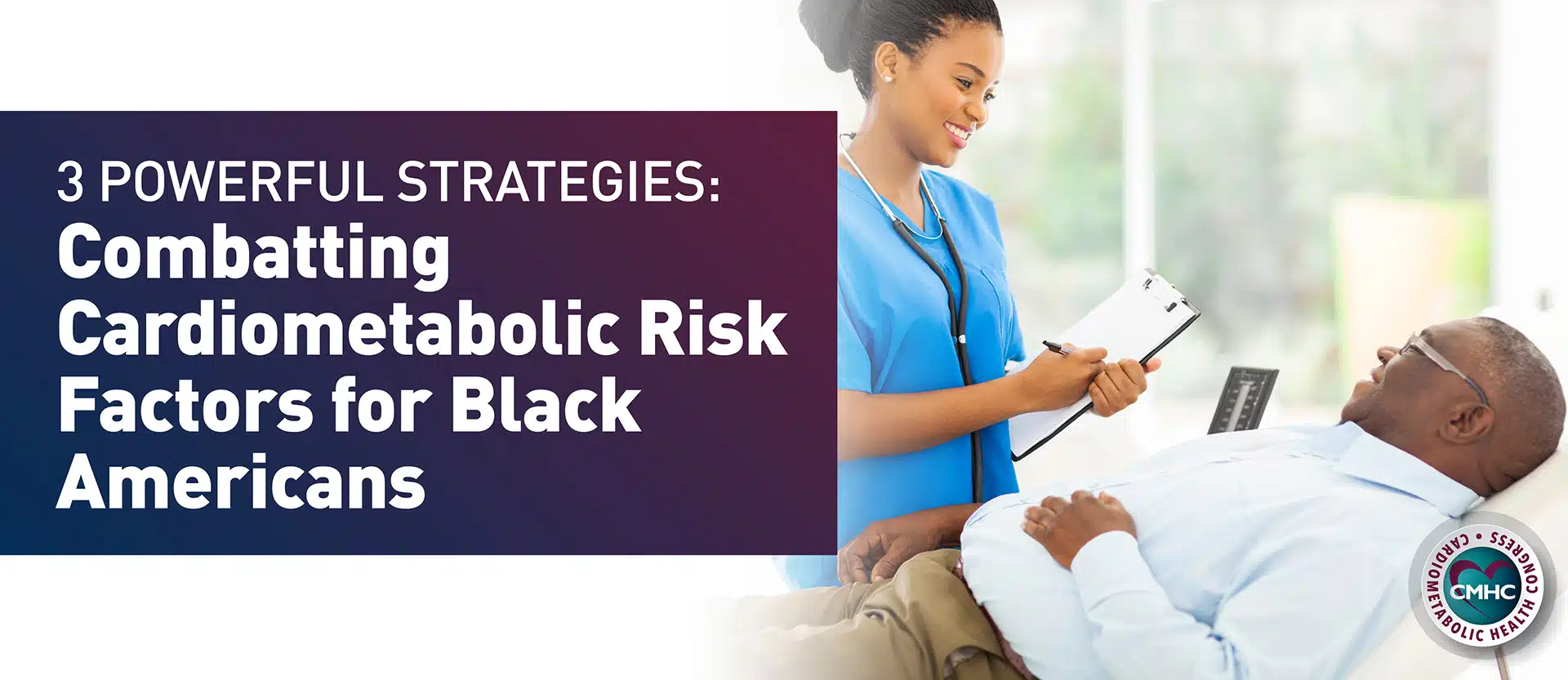The Cardiometabolic Health Congress (CMHC) was pleased to be present at the American Heart Association’s Scientific Sessions at the McCormick Place Convention Center in Chicago this November 5-7, 2022. Not only did CMHC debut an exciting Virtual Escape Room educational activity at booth #608 in the Exhibit Hall, but their expert faculty also presented a CME Dinner Symposium on Sunday, November 6, at the Marquis Marriott.
Virtual Escape Room
By presenting an innovative virtual activity during the AHA’s 2022 Scientific Sessions, CMHC brought a fun and stimulating learning environment directly to vested providers of cardiovascular medicine. A Virtual Escape Room experience enhances learning and retention using gaming elements of strategy, challenge, and reward. Simulating clinical 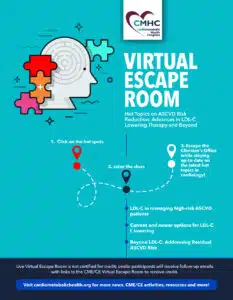
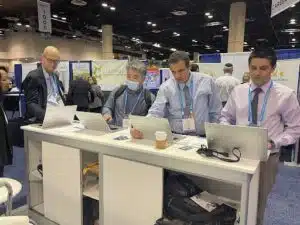
CME Dinner Symposium
On Sunday, November 6, CMHC faculty led What You Need to Know About Optimizing Cardiorenal Outcomes With Nonsteroidal MRAs, a dinner symposium informed by a timely clinical topic. In addition to a complimentary dinner of red quinoa salad, herb farro risotto, braised short rib, and passionfruit meringue tart, attendees of the CME Dinner Symposium heard from four of CMHC’s esteemed faculty about the use of nonsteroidal MRAs.
The coexistence of type 2 diabetes (T2D) and chronic kidney disease (CKD) significantly exacerbates cardiovascular and renal morbidity and mortality compared to the outcomes from either condition alone. Despite advances in therapy, many patients with DKD progress to kidney failure and have significant cardiovascular adverse events, and current strategies to address cardiorenal risk in these patients are inadequate. Recent developments regarding novel nonsteroidal MRAs can help address some of these gaps, particularly by targeting mineralocorticoid receptor (MR) overactivation, a key pathophysiological driver that remains unaddressed with current treatment options, including SGLT-2 inhibitors.
Cardiovascular Protection in Patients with CKD and T2D. To introduce the evening’s educational sessions, symposium chairperson George L. Bakris, MD, gave an overview of CKD as a cardiovascular risk factor and discussed the importance of identifying and assessing CKD to reduce cardiovascular risk. He discussed guidelines, markers, and tools to assess kidney function, as well as the importance of albuminuria screening in predicting adverse cardiorenal events.
Novel Nonsteroidal MRAs in Patients with CKD and T2D. Renowned nephrologist Rajiv Agarwal, MD, MS, reviewed current CKD treatments and their limitations, as well as the pathophysiology and role of MR overactivation in CKD progression. He explained that emerging SGLT-2 inhibitors do not address the pathophysiology and residual cardiorenal risk and wrapped up his session by acknowledging the limitations of steroidal MRAs when compared to nonsteroidal MRAs such as finerenone.
The Role of Nonsteroidal MRAs in Cardiovascular Care. Sylvia E. Rosas, MD, MSCE, associate professor of medicine at Harvard Medical School, addressed how nonsteroidal MRAs fit in with other cardioprotective therapies, provided an overview of guideline updates, and gave some insights for patient selection. Dr. Rosas cited evidence from clinical trials such as FIGARO-DKD, FIDELIO-DKD, and FIDELITY, and discussed the concomitant use of finerone and SGLT-2 inhibitors. In conclusion, she covered the updated 2022 ADA Standards of Care and the 2022 AHA Scientific Statement on Comprehensive Management of CV Risk Factors in Adults with Type 2 Diabetes, both of which now include the use of finerenone.
The approval of finerenone for managing CKD in T2D patients has been welcomed by experts in the field, but how to properly integrate this agent into the current treatment landscape needs to be addressed. The CMHC symposium offered clinicians a better understanding of the pathophysiology, screening, diagnosis, and current management options in CKD, as well as a comprehensive review of the data to translate this clinical evidence into better patient care.
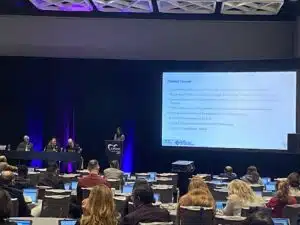
Challenging Patient Case. Founder of the Step Family Foundation Cardiac Rehabilitation and Wellness Center at UC San Diego, Pam R. Taub, MD, took the stage to present a patient case of a 54-year-old woman referred by her primary care provider for increasing creatinine with a history of diabetes. After disclosing the patient’s lab results, current medications, and physical exam results, Dr. Taub explained that the patient was on optimized RAAS therapy and an SGLT-2 inhibitor, but there is concern about cardiorenal risk based on the most recent lab results. She then challenged the audience to consider:
- Is the patient at risk of disease progression?
- What tests should be used to evaluate the patient?
- What other options should be considered in this patient to further decrease cardiorenal risk?
Panel Discussion, Q&A, and Conclusions. Using Dr. Taub’s patient as a point of discussion, the symposium faculty engaged in a roundtable exchange involving the audience to offer some additional clinical pearls regarding:
- Clinical practice implications of the FIDELIO and FIGARO trials
- Where this evidence fits with existing conventional DKD treatments, as well as SGLT-2 inhibitors
- How finerenone different from steroidal MRAs
- Safety of finerenone, particularly as it relates to hyperkalemia
- Integrating nonsteroidal MRAs into the DKD treatment algorithm in the near future
- Ongoing studies with nonsteroidal MRAs and what areas need additional investigation
The evening concluded with acknowledgment of the educational grant from Bayer that made the symposium possible, a nod to the staff of CMHC, and gratitude for the AHA in their pursuit of providing world-class education via the 2022 Scientific Sessions.
SYMPOSIUM FACULTY
This satellite symposium was supported by an educational grant from Bayer HealthCare Pharmaceuticals Inc., and jointly provided by Global Education Group and Cardiometabolic Health Congress. The activity was not part of the official Scientific Sessions as planned by the American Heart Association Committee on Scientific Sessions Programming.


